Filter by
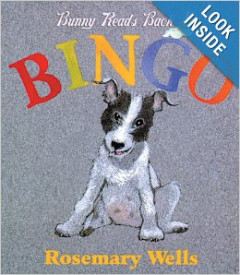
Bingo! (Bunny Reads Back) Board book
Children can read along with their favorite songs (with musical notation for parents) and enjoy Rosemary Wells's sunny illustrations. "Parents, caregivers, teachers, and anyone involved in preschoolers' lives should find this title a must-have." - School Library Journal
- Edition
- -
- ISBN/ISSN
- 9780590029131
- Collation
- -
- Series Title
- -
- Call Number
- WEL
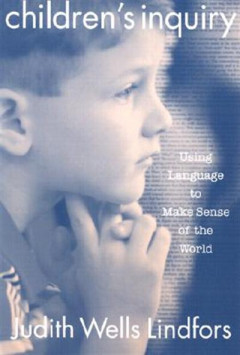
Children's Inquiry : Using Language to Make Sense of the World
This fascinating exploration of children's inquiry -- what it is, how it develops, and how it contributes to children's learning -- will help teacher educators and elementary teachers to understand, appreciate, and foster children's inquiry in classrooms. In this volume. Lindfors introduces a theoretical framework for understanding children's inquiry language -- not as linguistic forms (questio…
- Edition
- -
- ISBN/ISSN
- 9780807738368
- Collation
- 274p; col; pbk
- Series Title
- -
- Call Number
- 707 LIN

The Time Machine
- Edition
- -
- ISBN/ISSN
- 978-0-14-311841-1
- Collation
- 115p; bw; pbk
- Series Title
- -
- Call Number
- WEL
- Edition
- -
- ISBN/ISSN
- 978-0-14-311841-1
- Collation
- 115p; bw; pbk
- Series Title
- -
- Call Number
- WEL

The Case of the Sweaty Bank Robber
Todd and Noelle are volunteering at a blood drive when they get schocking news: Both banks in town have been robbed! This may be the Third grade Detectives most important case yet. The new police chief doesn't think he needs help from a bunch of third graders to solve crimes and if the kids can't prove him wrong, their detective careers may be over. The trouble is, the thief hasn't left any c…
- Edition
- -
- ISBN/ISSN
- 0-439-77433-0
- Collation
- 71p; ill; b/w; pbk
- Series Title
- Third Grades Detectives
- Call Number
- STA
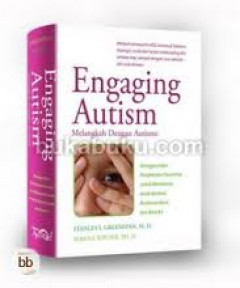
Engaging Autism: Melangkah bersama autisme
Ini adalah sebuah buku yang berharga: berharga bagi orangtua yang khawatir akan anaknya; berharga bagi para profesional yang memberikan konsultasi, berharga bagi tim (orangtua dan profesional) yang mencari program intervensi untuk masalah yang menakutkan ini. Program Floortime dan DIR adalah inovasi yang menarik dan sangat efektif.
- Edition
- -
- ISBN/ISSN
- 978-979-25-9121-7
- Collation
- 578p; b/w; hbk
- Series Title
- -
- Call Number
- 618. 928982 GRE
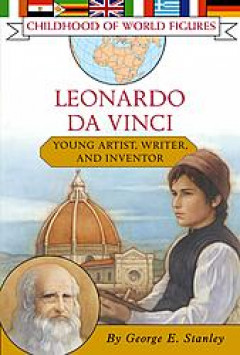
Leonardo Da Vinci
- Edition
- -
- ISBN/ISSN
- 9781416905707
- Collation
- 166p; pbk
- Series Title
- Childhood of World Figures
- Call Number
- 920 STA
- Edition
- -
- ISBN/ISSN
- 9781416905707
- Collation
- 166p; pbk
- Series Title
- Childhood of World Figures
- Call Number
- 920 STA

Edward Unready for School
Edward, a shy young bear unready for play school, feels out of place surrounded by student who are ready, busy, and happy.'
- Edition
- -
- ISBN/ISSN
- 803718845
- Collation
- 22p., il., hbk.
- Series Title
- -
- Call Number
- WEL
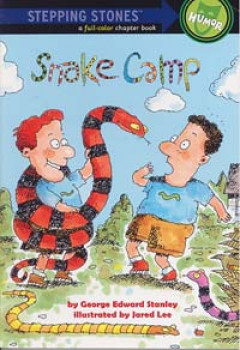
Snake Camp
Stevie Marsh is off for the summer to learn about computers at camp viper. He's not happy about being in the woods with all the bugs and poison ivy and-yuck!-snakes.
- Edition
- -
- ISBN/ISSN
- 0307264068
- Collation
- 44p; ill; col; pbk
- Series Title
- Stepping Stones - Humor
- Call Number
- STA

The Challenging Child
Most children fall into five basic personality types that stem from inborn physical characteristics: sensitive, self-absorbed, defiant, inattentive, etc. This book reassures parents that they do not simply have to 'live with' their child's temperament bu
- Edition
- -
- ISBN/ISSN
- 0201441934
- Collation
- 317p; bw; ill; pbk
- Series Title
- Optimistic and Reassuring
- Call Number
- 649.153 GRE
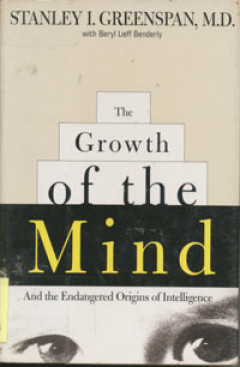
The Growth of The Mind and The Endangered Origin of Intelligence
Stanley Greenspan offers a profoundly new view of the origins of our minds' highest capacities. Contrary to traditional notions, he finds that intellegence per se does not arise from cogninitive stimulation, but along with morality, emphaty, and self-ref
- Edition
- -
- ISBN/ISSN
- 0-201-48302-5
- Collation
- x; 364p; hc.
- Series Title
- -
- Call Number
- 153 GRE
 Computer Science, Information & General Works
Computer Science, Information & General Works  Philosophy & Psychology
Philosophy & Psychology  Religion
Religion  Social Sciences
Social Sciences  Language
Language  Pure Science
Pure Science  Applied Sciences
Applied Sciences  Art & Recreation
Art & Recreation  Literature
Literature  History & Geography
History & Geography